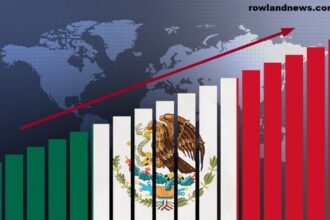Introduction: More Than Just Pieces of Paper
Imagine you wake up in a place that doesn’t have money. You go into a supermarket shop hoping to buy some bread and eggs, however, instead of paying the bill, you’re asked to sell some valuable item you own, such as your smartphone or sneakers. It sounds chaotic, doesn’t it? This is because money isn’t only an instrument of exchange, but it’s also among the most potent tools to keep our society in good shape.
No matter if we want to or not, cash plays an important role in virtually all aspects of our lives. From providing food to the table to safeguarding our goals for the future and more, money offers us choices as well as freedom and the feeling of safety. However, what is it that makes money so important in the first place? Does it simply serve as a tool to make ends meet or do they represent something much more?
We should take the time to think about an deep look at the reasons for the importance of money, not just for people, but also for families, communities, and for the global economy.
The Basic Role of Money in Everyday Life
A Medium of Exchange
In essence, money is a device, a medium that allows us to trade values. Prior to money, trading was common, and bartering was the way to go. However, bartering only works if each party has something that the one would like. The solution to this issue is money, offering a widely accepted way to pay, no matter if you’re paying for a coffee or paying for your electric bill.
A Store of Value
The money also acts as a value store, which means it is able to be stored and utilized for the future, without losing its purchasing power (at the very least, in economies that are stable). This lets us organize, save and accumulate money as time passes. Without this certainty, the ability to save for retirement or emergency situations would be almost impossible.
A Unit of Account
The use of money is to gauge and assess the value of both goods and services. It makes decisions easier and lets you determine whether a new cellphone is worth $1,000 when compared with a similar $500 phone. It enables prices to be established, salaries to be calculated, and economic planning to be carried out.
Why Is Money Important for Individuals?
1. Meeting Basic Needs
The first and most important thing is that the money we earn allows us to fulfill our basic requirements, including food, water, shelter, clothes, and health. If we don’t have it, our capability to sustain our lives is diminished. According to the World Bank, extreme poverty, defined as a person who lives on less than $2.15 daily, afflicts more than 700 million people across the globe. This is a clear illustration of just how important access to financial resources is.
2. Access to Quality Education
An education that is good can open doors; however, it usually has a cost. Tuition, books, uniforms, transportation–these all cost money. It doesn’t matter if you’re enrolling at colleges, pursuing an occupational training course, or buying educational tools for children, funds are essential to expand the possibilities of knowledge and.
The real-world example: A child living in the lowest income bracket may have difficulty staying on top of their studies just because they aren’t able to afford an iPad or access to the internet unlike their peers who can benefit from tutoring or extracurricular programming.
3. Health and Well-being
It is often the difference between life and the end of your life. It can affect access to top-quality medical care, nutritious food alternatives for fitness, as well as the resources for mental health. Individuals with higher incomes tend to live longer and healthier lives due to the fact that they are able to afford medical treatments, prevention and a healthier way of life.
A research study released by the National Institutes of Health confirms the strong connection between life expectancy and income and reveals that people with higher incomes have a longer life span than those with lower incomes.
4. Freedom and Choice
The money we earn gives us choices. Do you want to go on a trip? Create a new business? Move to a new location for better work? These all require financial resources. It doesn’t guarantee happiness, but it will provide you with the ability to choose the things that make you satisfied.
Imagine money as an aspect of your personal authority. In the absence of it, options are limited significantly. You’ll be able to have greater control over the way you lead your life.
Money and Emotional Well-Being
5. Financial Security Reduces Stress
Based on the American Psychological Association, money remains among the most significant sources of stress for Americans in particularly when the money doesn’t meet the necessary expenses. The same is true for expenses that are essential to the family. The reverse, however, is the case: when your finances are secured, anxiety levels are lower.
An emergency fund, a steady income, and a low amount of debt give security. It’s not a constant worry of unexpected medical expenses or how you’ll pay the rent for the next month.
6. Supporting Relationships and Community
The use of money isn’t only for the sake of personal gain; it’s also an instrument to give. Be it helping a person struggling, helping elderly parents, or giving to charity, the financial power can help us help the well-being of other people.
A healthy financial situation can alleviate stress in family relations. The financial situation is a major reason for divorce and conflict. Couples that manage their finances efficiently often enjoy a happier and secure relationship.
Why Is Money Important for Society?
7. Economic Growth and Innovation
Companies, both small and large, require capital to expand. The capital they receive is used to fund research, create jobs, and innovate. In the process, money flowing into an economy ensures that people are employed and markets run.
Venture capital, as an example, is a source of funding for startups that could someday change the world, similar to how the early venture capital investments helped to create businesses such as Apple or Tesla. Without funds, development could stagnate.
8. Infrastructure and Public Services
Taxes, which are derived from earned income and business profits, aid in funding roads as well as hospitals, schools, emergency services and much more. Societies count on contributions from their finances to create and sustain the infrastructures that provide the necessities of living.
Imagine a town without functioning streets, garbage collection, or even clean water. These aren’t luxury items, but the results of a structured, cash-driven government.
9. Social Equity and Empowerment
Although money may increase inequality when it is distributed unevenly, it also has the capacity to help those who are marginalized. Programs for financial inclusion, micro loans and specific policies for welfare help people get out of the cycle of poverty.
Organizations such as Grameen Bank have empowered thousands of women in the developing world with small loans, allowing women to create their own enterprises and be self-sufficient.
Read Also: How to invest on the China Stock Market from India
The Psychological Side of Money
10. Sense of Accomplishment and Identity
Making money and managing it often is a sign of personal success and achievement. It doesn’t matter if you land a lucrative job or acquire the first home of your life, financial events boost our confidence and sense of identity.
But it’s vital to keep this in check with the health of your mind. A fixation on self-worth that is too dependent on money can result in stress and burnout.
11. Financial Literacy Is Key
Understanding the way money works is equally important as possessing it. Knowing how to plan, invest, save and deal with debt enables people to make better decisions. If not, even people with high earnings could find themselves having a difficult time.
The incorporation of personal finance education into classes and in community programs could significantly increase the economic mobility of people in the long run.
Common Misconceptions About Money
“Money is the root of all evil.”
This is an incorrect quote. The original quote in the Bible is “The love of money is the root of all evil.” Money can be used in a neutral way, it’s the method we employ to use it that’s the issue. The currency can cause corruption, but it is also able to help, heal, and elevate.
“Money can’t buy happiness.”
Yes, it is possible to bring tranquility, peace, as well as opportunities and security–all that contribute to happiness. Research has shown that, up to the level of income (about $75,000 to $100,000 each year across many nations), the amount of income is able to have a correlation with happiness, mostly through reducing anxiety and enhancing happiness.
How to Make Money Work for You
After we’ve established the reasons for the importance of money, the next issue is how to make use of your money effectively?
- Spend your money wisely: Track your income as well as expenses.
- Saving consistently: Build an emergency savings account, and then save it for future objectives.
- Investment: Let your money expand through stock and real estate or other types of vehicles.
- Avoid high-interest debt: Credit card debt can trap you quickly.
- Learn more: Financial education is always ongoing. Read books, keep up with reliable blogs, and remain informed.
Conclusion: Money Is a Tool, Not the Goal
In conclusion, it is vital to have money, not due to what it is in itself, but rather because of the things it allows us to accomplish. It allows us to care for our families, follow our passions as well as travel around the world and support causes that we feel strongly about. It’s important to keep in mind that your money is meant to serve you, not and vice versa.
If you’re only beginning your journey or are already accumulating wealth, the way you approach and think about the money you earn will affect your overall lifestyle. Be mindful. Learn about yourself. Be respectful of money, but don’t adore it.
Start Your Financial Journey Today
Are you looking to have greater control of your finances as well as your financial future? Begin by establishing smaller, attainable financial goals this week. For instance, tracking your spending or establishing an emergency savings account. Use trusted sources such as MyMoney.gov for tips, tools, and educational modules that are designed for people of all ages and different levels of income.
Since you grasp that money is a powerful tool, you’re not just living, but flourishing.
Helpful Resources:














